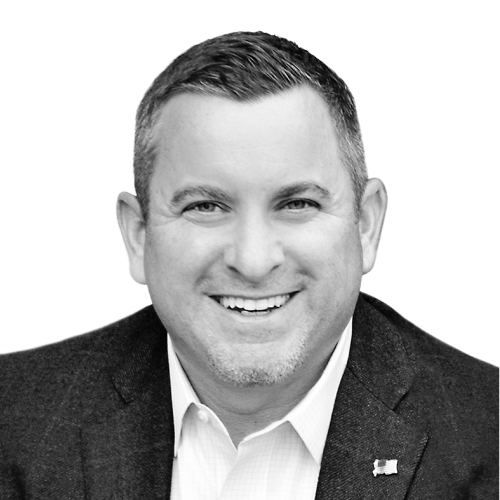“I just love to figure people out. I like to better understand why people do what they do,” says Chelle O’Keefe.
It’s an understandable notion, seeing as O’Keefe originally pursued a career in psychology. Today, she may be the executive vice president and CHRO at Associa—a company that offers association management, accounting, developer consulting, information technology, and maintenance services—but it’s also her background in psychology and interest in human behavior that help to build motivated teams able to thrive in any change or environment.

Behind the operations at Associa, O’Keefe is responsible for ensuring that the company’s employees are trained and motivated to do their best work so that they can better assist their clients. Since joining Associa in 2014, O’Keefe has combined her education in psychology with her experience in HR, where she has applied them to the fast-paced corporate environment.
“In the business world, I may not be able to help the same number of people at the same depth as a psychologist might, but by putting programs in place, or doing training and development in corporations, I can impact a larger number of people overall,” she says.
One aspect of psychology that O’Keefe focuses on is the concept of motivation and change. Her work centralizes on changing organizations for the better and improving the employee experience. Throughout her career, O’Keefe also had the opportunity to sharpen not only what she refers to as her personal skills in leadership development and time management, but also in change management, which includes helping individuals or whole companies thrive in change.
In her research, O’Keefe highlights Mindset, a book by Carol Dweck, which discusses two fundamental types of mind-sets that most people have: a fixed mind-set and a growth mind-set. With a growth mind-set, people tend to be more opportunistic and more willing to try new experiences. In a fixed mind-set, people believe their basic qualities cannot change. People with a growth mind-set are statistically shown to be more successful than those with a fixed mind-set because they are not pigeonholed and are open to exploration. O’Keefe implements the same learnings at Associa.
“To a large extent, we all have a choice,” she says. “We have a choice of our outlook and our attitude. There’s this opportunity for each of us to think about our current mind-set and make sure we’re open to new opportunities and open to growth.”
O’Keefe says that while the audiences and preferences change depending on the company and industry, human behavior is the common thread. In fact, in all of her previous tenures, O’Keefe has carried three fundamental beliefs that helped her motivate and manage others.
1. People are Internally Motivated
While pay and recognition are typically sought, O’Keefe believes that those factors only last a short period of time. To motivate long-term, one has to discover what’s meaningful to each individual.
“People are only ready to commit to change when they are in a place of comfort, when they are adequately trained, and when they connect to something that matters to them,” O’Keefe says. “The work environment can be really busy, but if you don’t take time to determine what motivates people, then you’ll fail.”
At Associa, O’Keefe frequently asks questions to discover what motivates her team. The company also conducts employee pulse surveys, where O’Keefe and her team check-in with their workforce at least three times a year.
2. Be Honest and Authentic
“You can’t always come out with a positive message,” O’Keefe says. “Sometimes in change, you have to help people let go of things that they liked.”
O’Keefe says it’s a leader’s responsibility to discover what aspects people may be afraid to let go of. Then, it’s having the courage to move forward with change instead of spinning a message to a point where you’re not being authentic.
3. “What’s the Third Option?”
Finally, there’s what O’Keefe refers to as Option C. Typically in a conversation or a dilemma, people tend to default to two options, so O’Keefe is sure to ask, “What’s the third option?”
“Option C typically allows us to get the best of both options,” she explains.
For example, O’Keefe has used Option C to help employees from being laid off and instead relocating them to a department that better suits their goals and talents in order to help them thrive.
Now, using these fundamental beliefs for guidance, O’Keefe is spearheading three core initiatives at Associa, all of which revolve around the employee experience.
The first area of focus is the benefits program. Over the past few years, Associa has been working to implement a more robust benefits program while also keeping medical premiums flat—a major accomplishment in the current healthcare environment. Associa has also implemented Aetna’s Teladoc, which allows employees to connect with a physician over the phone or via videoconferencing for questions instead of needing to schedule an in-person appointment.
Recognizing that an employee’s experience is most influenced by their direct leader, Associa has also been improving leadership development. That includes identifying high-potential leaders, and creating group programs and individual development plans. Associa also holds annual leadership summits in the spring and a monthly leadership series through online training.
Finally, O’Keefe continues to refine the integration strategy. Because Associa is a mosaic made up of other companies, her constant challenge is to ensure a consistent Associa experience across the board. She says that’s where the company’s mission, vision, and values come in, as O’Keefe and her team relay this through a pocket-sized handbook and in all of their communications across the board.
But of all the values, family spirit is one of the main sources of pride not only because the company is family-owned, but also because of the belief that Associa operates best when everyone in the company feels a part of the team and loves coming to work every day. It’s also why even though HR has become more data driven in the past few years, O’Keefe always recalls the behavioral and psychological components that can go a long way in motivating and helping team members thrive.
“We have to speak the language of business and data, the science of HR, but balance it with the art of people and human behavior,” she says. “Each employee matters and is unique, and we have to meet each person where they are.”
Photos: Sebron Snyder
ADP congratulates Associa, a global leader in association management, on being featured in Profile magazine. We value our partnership with Associa, and we are honored to work with one of the leading community management firms.

